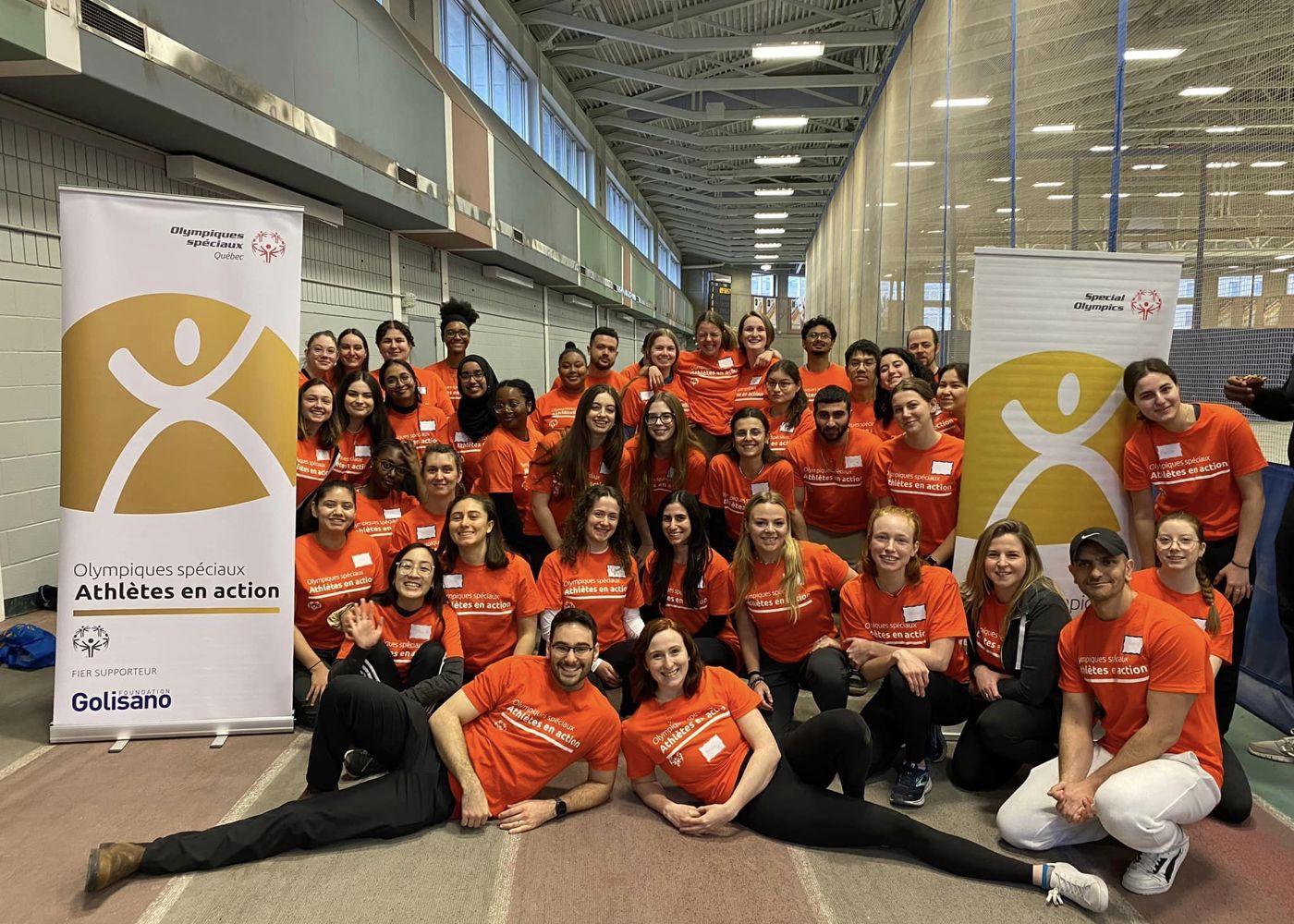Volunteer Clinical Director Zachary Weber Shares How Special Olympics Healthy Athletes Improves Lives

A 60% likelihood of being overweight or obese. A 15% referral rate to the emergency room for for acute oral disease. A life expectancy 16 years shorter than the general population. These are not just statistics — they’re the reality for many people with intellectual and developmental disabilities (IDD).
Written by Callum Denault, Special Olympics Canada athlete and staff member
Through Special Olympics’ Healthy Athletes initiative, volunteers across Canada are working to change that.
From providing free health screenings to offering education, resources and referrals, they’re helping ensure athletes with IDD get access to the care they need — and the dignity, equity, and opportunity they deserve.
According to Zachary Weber—a Healthy Athletes Clinical Director from Special Olympics Quebec—many of these health problems that people with IDDs face are totally preventable.
“How many of these impairments we find,” asked Zachary, “come from the health state: the diagnosis of Down syndrome, Cerebral Palsy, any of these aspects where there are physiological changes based off the condition? And how many come from activity limitations and restrictions, from a life where people with disabilities might not have opportunities for sports and don’t know they can complain about pain? A life where they are not encouraged to get off the couch?”
Working as a physiotherapist for muscular-skeletal issues, Zachary works his day job into being a Special Olympics Healthy Athletes Clinical Director. The Montreal volunteer first heard about Special Olympics in 2014, when there was an employment call for Special Olympics Quebec animator. For a little under three years, Zachary travelled across the province to help different specialized schools run days of sports or competitions. Zack did this while studying as an undergrad at McGill university, and he later transitioned towards Healthy Athletes while working towards a Master’s Degree in science and physiotherapy.
 Within Healthy Athletes, Zachary learned the program’s goal of providing medical assistance to people with intellectual and/or developmental disabilities, and saw gaps in the broader Canadian healthcare system. Gaps that he could fill.
Within Healthy Athletes, Zachary learned the program’s goal of providing medical assistance to people with intellectual and/or developmental disabilities, and saw gaps in the broader Canadian healthcare system. Gaps that he could fill.
"With that passion that was driving me,” Zachary said, “I’ve been with [the Healthy Athletes programs] ever since.”
Recent studies have justified Zachary’s decision to dedicate some of his free time to Healthy Athletes, as well as his argument that participating in sports can reduce the health risks seen in people with intellectual and developmental disabilities. The Faculty of Health Sciences at Ontario Tech University found participation in Special Olympics Canada reduces the rate of both diabetes and depression within people who have IDDs.
“I think of a what a senior volunteer said to me,” Zachary recalled, “when I was starting out in Special Olympics, she looked at me and said, ‘some people enjoy painting, and I enjoy spending time with these athletes.’ When you see volunteerism as a hobby, it changes everything.”
As a Clinical Director, Zachary is responsible for finding new venues to have pop-up clinics for Special Olympics athletes to have checkups in, help run said popups, and maintain/expand a network of clinicians interested in volunteering at these events. Special Olympics Chapters across Canada also maintain lists of various health professionals and clinics trained in dealing with patients who have IDD across various disciplines, so people can find accommodated care.
According to Zachary—who balances being a Clinical Director with the responsibilities of work and his personal life—the experience he gained in Special Olympics has directly translated to an improved career.
“There is a skill to being present in the conversation,” he said, “live reflection, adaptability, patience, and seeing the world through the eyes of another.”
Zachary’s biggest concern is finding what will work to improve a patient’s health, and then convey that information to them in a way they will understand and apply. For example, knowing an exercise that can help patient recover from a sprained ankle is useless if that person does not know why the exercise can help, or simply does not do the action that can help with their injury. This applies to all physiotherapy patients, but Zack found the communication barriers are highlighted within Special Olympics athletes and patients with IDDs.
“There is no better way for me to train this,” Zachary added, “than working with the athletes who maybe see the world slightly differently than how you or I do.”
To this end, Zachary also helped create a curriculum for physiotherapy students to learn different ways of communicating with patients who have IDDs. This curriculum is being taught at McGill University (Zack’s alma mater), Dawson College, and Université du Québec à Chicoutimi, and Cégep de Jonquière. Needless to say, he is making a huge impact.
“I have this happy go lucky mentality,” Zachary said, “that if you follow what you enjoy, you’ll end up where you want to be.”
